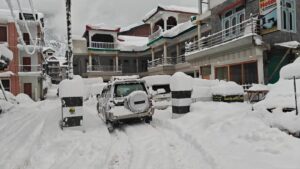PESHAWAR – As climate-related catastrophes continue to rise, disaster management in Khyber Pakhtunkhwa (KP) has become a pressing issue. The provincial government is preparing to launch a new five-year plan (2025–2026) focused on controlling damage from floods, earthquakes, and other calamities, especially in high-risk areas.
Experts emphasize that effective disaster management in KP cannot succeed without sustained financial assistance from national and international institutions. While planning and rapid response remain key, funding forms the backbone that supports critical components like modern equipment, trained teams, and early warning systems.
The World Bank (WB) and several donor agencies have expressed willingness to fund disaster preparedness efforts. However, this aid must tie to transparent planning and sustainable practices that involve local communities. The provincial government must also ensure that resources reach the most vulnerable populations and are distributed fairly.
Read More: PHC Bans Illegal Glacier Cutting in KP to Prevent Climate Disasters
Infrastructure Gaps, Preparedness Challenges
Officials stress that the government must give special attention to remote and mountainous areas of Khyber Pakhtunkhwa that remain cut off during natural disasters. These regions often suffer the most because they lack roads, communication, and healthcare infrastructure. Establishing disaster response centers at the district and tehsil levels can help bridge this gap.
The strategy also includes setting up local disaster response units, training youth volunteers, and modernising communication systems. Officials urge better coordination among government departments and recommend integrating climate resilience into urban and rural development plans.
Climate change has turned disaster management in KP into a daily necessity. Recent floods revealed the province’s fragile infrastructure and poor preparedness — villages vanished, roads crumbled, and displaced families went without aid for extended periods.
Read More: Climate Change in Khyber Pakhtunkhwa: A Growing Financial Concern
Long-Term Strategy and Shared Responsibility
The way forward involves long-term financial planning, stronger governance, and using modern technology for forecasting and response. With communities already facing poverty and underdevelopment, they cannot fend for themselves in times of crisis.
Effective disaster management in KP must become a shared responsibility. Transparent use of donor funds, government commitment, and empowered local responders are essential to ensure that natural disasters no longer result in widespread human suffering.












